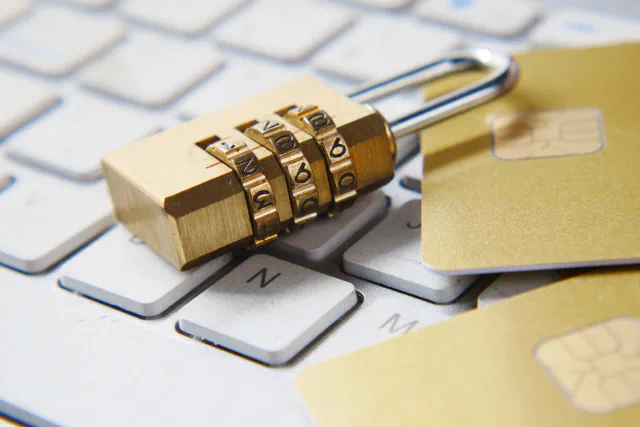
Have you ever wondered how a VPN works? It may seem like a complex concept, but fear not this article will provide you with a friendly and simple explanation.
A VPN, or Virtual Private Network, allows you to securely connect to the internet by creating a private tunnel between your device and the websites you visit.
It encrypts your data, making it virtually impossible for anyone else to intercept or access your online activities.
Through this article, you will gain a clear understanding of how a VPN works and how it can enhance your online privacy and security.
So, let’s jump right in and explore the fascinating world of VPNs!
What is a VPN?
A VPN, or Virtual Private Network, is a technology that allows you to create a secure connection over a public network, such as the internet.
It acts as a tunnel that encrypts your data and masks your IP address, making it difficult for anyone to intercept or track your online activities.
In simple terms, a VPN provides you with a private and secure pathway to browse the web.
Definition of a VPN
A VPN is a service that enables you to connect to the internet through a secure and encrypted network, protecting your online privacy and security.
It allows you to establish a connection to a remote server, which acts as a middleman between you and the websites or services you access.
By encrypting your data and routing it through the VPN server, a VPN ensures that your online activities are hidden and your sensitive information remains secure.
Purpose of a VPN
The primary purpose of a VPN is to safeguard your online privacy and security.
By encrypting your internet traffic and masking your IP address, it prevents unauthorized users, such as hackers or government agencies, from monitoring your online activities or stealing your personal information.
Additionally, a VPN allows you to bypass geographical restrictions and access blocked content or websites, giving you freedom and unrestricted access to the internet.
VPN Protocols
VPN protocols are the set of rules and encryption standards that VPNs use to establish secure connections.
For a detailed exploration, check out our guide on VPN protocols .
Different VPN protocols offer varying levels of security, speed, and compatibility with different devices. Here are three commonly used VPN protocols:
Types of VPN Protocols
OpenVPN: OpenVPN is a widely adopted and highly secure VPN protocol. It uses open-source technology and can run on various operating systems, including Windows, macOS, Linux, and mobile platforms. OpenVPN employs a combination of symmetric and asymmetric encryption algorithms, making it extremely secure.
IPSec: Internet Protocol Security (IPSec) is another popular VPN protocol that offers strong security. It encrypts your data packets at the IP level and can be used with different encryption algorithms, such as AES and 3DES. IPSec is widely supported and often used for securing corporate networks.
L2TP/IPSec: Layer 2 Tunneling Protocol (L2TP) combined with IPSec provides a highly secure VPN connection. L2TP is responsible for establishing the tunnel, while IPSec handles the encryption and authentication. It is a good choice for users who prioritize security but are willing to tradeoff some speed.
How VPN Protocols Work
VPN protocols work by establishing a secure and encrypted connection between your device and the VPN server.
When you connect to a VPN server, the VPN software or app on your device negotiates a secure connection using the selected VPN protocol.
Once the connection is established, your data is encrypted before being sent over the internet.
This encryption process ensures that even if someone intercepts your data, they won’t be able to decipher it without the encryption key.
The VPN server also acts as a proxy for your internet traffic, making it appear as if your online activities are originating from the VPN server’s location rather than your own.
The choice of VPN protocol depends on factors such as security requirements, speed, and device compatibility.
It’s important to select a VPN protocol that meets your specific needs and provides the desired balance between security and performance.

Encryption and Data Security
Encryption plays a crucial role in ensuring the privacy and security of your data when using a VPN. It transforms your data into an unreadable format that can only be decrypted with the correct encryption key. Here’s why encryption is important in the context of VPNs:
Importance of Encryption
Data Protection: Encryption converts your data into a jumble of characters that cannot be understood without the encryption key. This ensures that even if someone intercepts your data, they won’t be able to decipher it, effectively protecting your sensitive information from unauthorized access.
Privacy: Encryption helps maintain your online privacy by preventing anyone, including internet service providers (ISPs), government agencies, or hackers, from monitoring your online activities and gathering personal information. It ensures that your internet traffic remains private and secure.
Encryption Methods Used by VPNs
VPN providers use various encryption methods to secure your data. The strength of encryption is measured in bits, with a higher number of bits indicating stronger encryption. Common encryption methods used by VPNs include:
AES (Advanced Encryption Standard): AES is a widely used symmetric encryption algorithm known for its strength and security. It supports different key lengths, with AES-256 being the most secure. It is considered virtually uncrackable and is used by many VPN providers to encrypt data.
RSA (Rivest-Shamir-Adleman): RSA is an asymmetric encryption algorithm commonly used for key exchange during the initial connection setup. It uses a pair of keys - a public key for encryption and a private key for decryption. RSA is known for its security but can be computationally intensive.
Diffie-Hellman: Diffie-Hellman is a key exchange protocol that allows two parties to establish a shared secret key over an unsecured network. It is often used in combination with other encryption algorithms to ensure secure communication between VPN servers and clients.
By employing strong encryption methods, VPNs ensure that your data remains secure and private, protecting you from potential threats and intrusions.
VPN Server and Client
To establish a VPN connection, you need both a VPN server and a VPN client. These components work together to facilitate a secure connection and ensure your online privacy.
VPN Server
A VPN server is a remote server operated by the VPN provider. It acts as an intermediary between your device and the websites or services you access.
When you connect to a VPN server, your internet traffic is routed through it before reaching its final destination.
The VPN server receives your data packets, encrypts them, and forwards them to their intended destination.
It also decrypts incoming data from websites or services and sends it back to your device in an encrypted form.
This process ensures that your online activities are protected and that your data remains secure throughout the transmission.
VPN Client
A VPN client is the software or app that you install and run on your device to connect to the VPN server. It allows you to establish a secure connection and enables the encryption and decryption of your data.
The VPN client also provides an interface for you to choose the VPN server location and control various settings.
VPN clients are available for a wide range of devices and operating systems, including desktop computers, laptops, smartphones, and tablets.
Once installed, you can easily toggle the VPN connection on or off and select the desired VPN server location based on your needs.
The combination of a VPN server and client creates a secure and encrypted connection that protects your privacy and enhances your online security.

Establishing a VPN Connection
Establishing a VPN connection involves two important processes: authentication and tunneling.
These steps ensure that your connection is secure and that only authorized individuals can access the VPN network.
Authentication
Authentication is the process of verifying the identity of a user or device seeking access to the VPN network. It ensures that only authorized individuals can establish a VPN connection. Different authentication methods are used, including:
Username and Password: This is the most common form of authentication. When you connect to a VPN, you provide a username and password associated with your VPN account. The VPN server verifies this information to grant you access.
Certificates: Certificates provide an extra layer of security for authentication. They are digital files issued by the VPN provider that contain specific information about your account. These certificates are used to verify your identity when establishing a VPN connection.
Two-Factor Authentication (2FA): Two-factor authentication adds an additional security measure to the authentication process. In addition to your username and password, you are required to provide a second form of verification, such as a code sent to your smartphone or a biometric scan.
Authentication ensures that only authorized individuals can access the VPN network and protects against unauthorized access and potential security breaches.
Tunneling
Tunneling is the process of encapsulating your data packets within a secure and encrypted tunnel before they are transmitted over the internet.
It protects your data from being intercepted or tampered with by encrypting it before it leaves your device.
Tunneling involves two main components: the encapsulation protocol and the encapsulation method.
The encapsulation protocol determines how the data packets are wrapped or encapsulated, while the encapsulation method defines the encryption and authentication mechanisms used.
When you establish a VPN connection, your data packets are encapsulated using the chosen protocol and method before being transmitted to the VPN server.
Once they reach the VPN server, they are decrypted, and the original data is extracted and forwarded to its intended destination.
Tunneling ensures that your data remains secure and private while traversing the internet, protecting it from potential threats and unauthorized access.
Benefits of Using a VPN
Using a VPN offers numerous benefits, enhancing your online experience and providing you with added security and privacy. Here are some key advantages of using a VPN:
Enhanced Privacy and Anonymity
One of the primary benefits of using a VPN is the enhanced privacy and anonymity it provides.
By encrypting your data and hiding your IP address, a VPN ensures that your online activities remain private and that your sensitive information is protected.
This is particularly important when using public Wi-Fi networks or when accessing sensitive information online.
Access to Blocked Content
A VPN allows you to bypass geographical restrictions and access content that may be blocked or unavailable in your location.
By connecting to a VPN server located in a different country, you can appear as if you are browsing the internet from that location.
This gives you the ability to access region-restricted websites and services, such as streaming platforms or social media sites, no matter where you are.
Secure Remote Access
For businesses or individuals working remotely, a VPN provides a secure way to access corporate networks or resources.
By connecting to a VPN server, remote employees can establish a secure connection to their organization’s network, ensuring that data is transmitted safely and confidentially.
Protection on Public Wi-Fi
Public Wi-Fi networks, such as those found in coffee shops, airports, or hotels, are prone to security risks.
Hackers often target these networks to intercept sensitive information, such as usernames, passwords, or credit card details.
By using a VPN on public Wi-Fi, your data is encrypted, making it extremely difficult for hackers to eavesdrop or steal your information.
Bypassing Internet Censorship
In certain countries or regions, internet censorship is prevalent, limiting access to certain websites or services.
A VPN can help bypass these restrictions by allowing you to connect to a server located in a different country with fewer restrictions.
This enables you to freely access the internet and browse content that may otherwise be unavailable.
VPN Logging and Privacy
While VPNs are designed to protect your privacy, it’s essential to understand that not all VPNs are created equal when it comes to logging policies and data retention. Here are some factors to consider:
Logging Policies
Some VPN providers may keep logs of your online activities, including websites visited, data transferred, or even timestamps.
While this may be necessary for troubleshooting or improving their services, it could also compromise your privacy.
It is crucial to choose a VPN provider that has a strict no-logs policy, meaning they do not keep any records of your online activities.
When selecting a VPN, look for providers that are transparent about their logging policies and have undergone independent audits to verify their claims.
This ensures that your online activities remain private and that your data is not stored or shared with third parties.
Jurisdiction and Data Retention
The jurisdiction in which a VPN provider operates can also impact privacy.
Some countries have data retention laws that require companies to collect and retain user data for a specific period, making it susceptible to surveillance or government requests.
Choosing a VPN provider based in a privacy-friendly jurisdiction may offer greater protection for your data.
Additionally, consider VPN providers that have a clear data retention policy, ensuring that your data is promptly deleted and not stored longer than necessary.
This further safeguards your privacy and reduces the risk of your data falling into the wrong hands.
Common VPN Misconceptions
There are several misconceptions surrounding VPNs, which may deter some individuals from using them. Let’s address and debunk some common misconceptions:
VPNs are for Illegal Activities
While VPNs can be used for illicit purposes, such as bypassing copyright infringement or engaging in illegal activities, their primary purpose is to protect online privacy and security.
A vast majority of VPN users utilize VPNs for legitimate reasons, such as accessing region-restricted content, securing their internet connection, or protecting sensitive information.
VPNs are Slow and Impact Internet Speed
It is true that using a VPN may introduce some latency and potentially impact internet speed.
However, advancements in VPN technology and server infrastructure have significantly improved performance, and many reputable VPN providers offer high-speed connections.
The impact on speed can vary depending on factors such as the distance to the VPN server, server load, and the encryption protocols used.
Want to see how your VPN measures up? Try our free VPN speedtest .
Opting for a VPN provider with a large server network and optimized infrastructure can help minimize any performance impact.
VPNs are Only for Tech Experts
While VPN technology can be complex, modern VPN clients have become user-friendly and intuitive, making them accessible to users of all skill levels.
Most VPN providers offer easy-to-use apps that require minimal configuration.
With just a few clicks or taps, you can connect to a VPN server and enjoy the benefits of enhanced privacy and security.
Choosing the Right VPN
Selecting the right VPN provider is crucial to ensure a secure and reliable connection. Here are some considerations to keep in mind when choosing a VPN:
Considerations When Selecting a VPN Provider
Security and Privacy: Ensure that the VPN provider has a strong reputation for security and adheres to a strict no-logs policy. Look for features such as AES-256 encryption, support for secure VPN protocols, and additional security measures, such as a kill switch or DNS leak protection.
Server Network: A large server network spread across different countries will provide more options and flexibility in choosing a VPN server location. It can also help optimize speed and performance by reducing server congestion.
Device Compatibility: Ensure that the VPN provider supports the devices and operating systems you plan to use. Check if they offer dedicated apps for your devices and if they allow multiple simultaneous connections, allowing you to protect multiple devices with a single subscription.
Customer Support: Look for VPN providers that offer responsive customer support. This can be in the form of live chat, email support, or comprehensive knowledge bases. Good customer support ensures that any issues or concerns you encounter are promptly addressed.
Free VPNs vs. Paid VPNs
While free VPNs can be tempting, they often come with limitations and potential risks. Free VPN providers might have slower speeds, limited server options, or offer no customer support.
Moreover, some free VPNs generate revenue by selling your data to third parties, posing a significant privacy concern.
Paid VPNs, on the other hand, typically offer better performance, more features, and enhanced security.
They invest in server infrastructure, security audits, and customer support, ensuring a higher level of privacy and service quality.
Considering the importance of online privacy and security, investing in a reputable paid VPN service is well worth the cost for a superior and more reliable experience.
Conclusion
In today’s digital age, where online privacy and security are paramount, a VPN is an invaluable tool. It provides a secure and encrypted connection, protecting your data from potential threats and intrusions.
Whether you want to browse the internet privately, access blocked content, or safeguard your online activities on public Wi-Fi networks, a VPN offers enhanced privacy, anonymity, and peace of mind.
Remember to choose a reliable VPN provider that prioritizes security and privacy, and enjoy the benefits of a safer and more unrestricted online experience.
